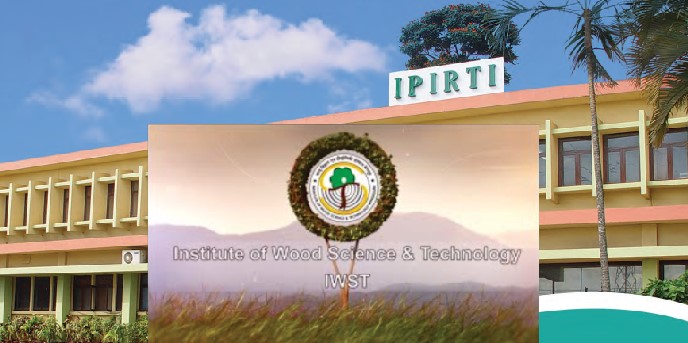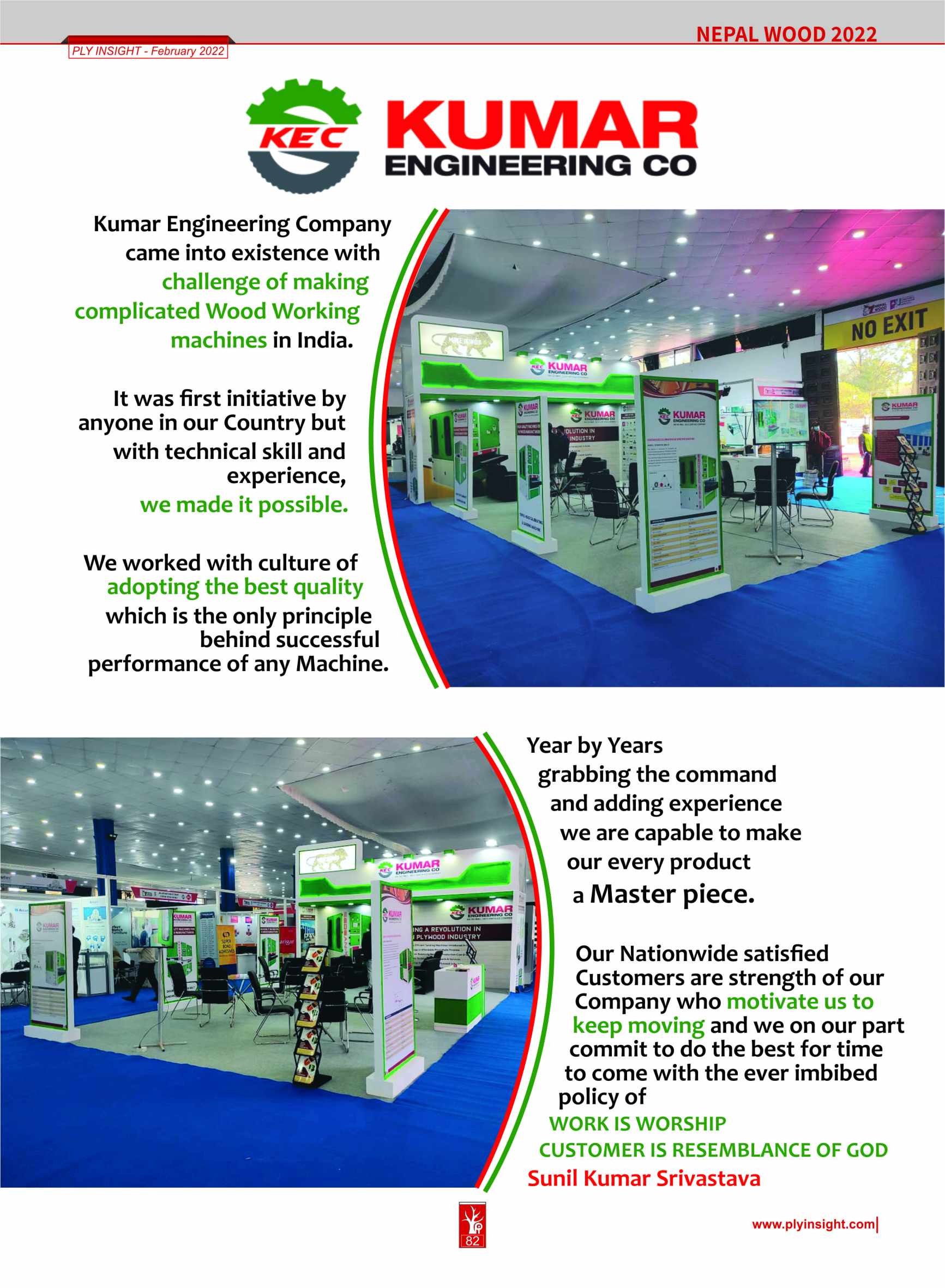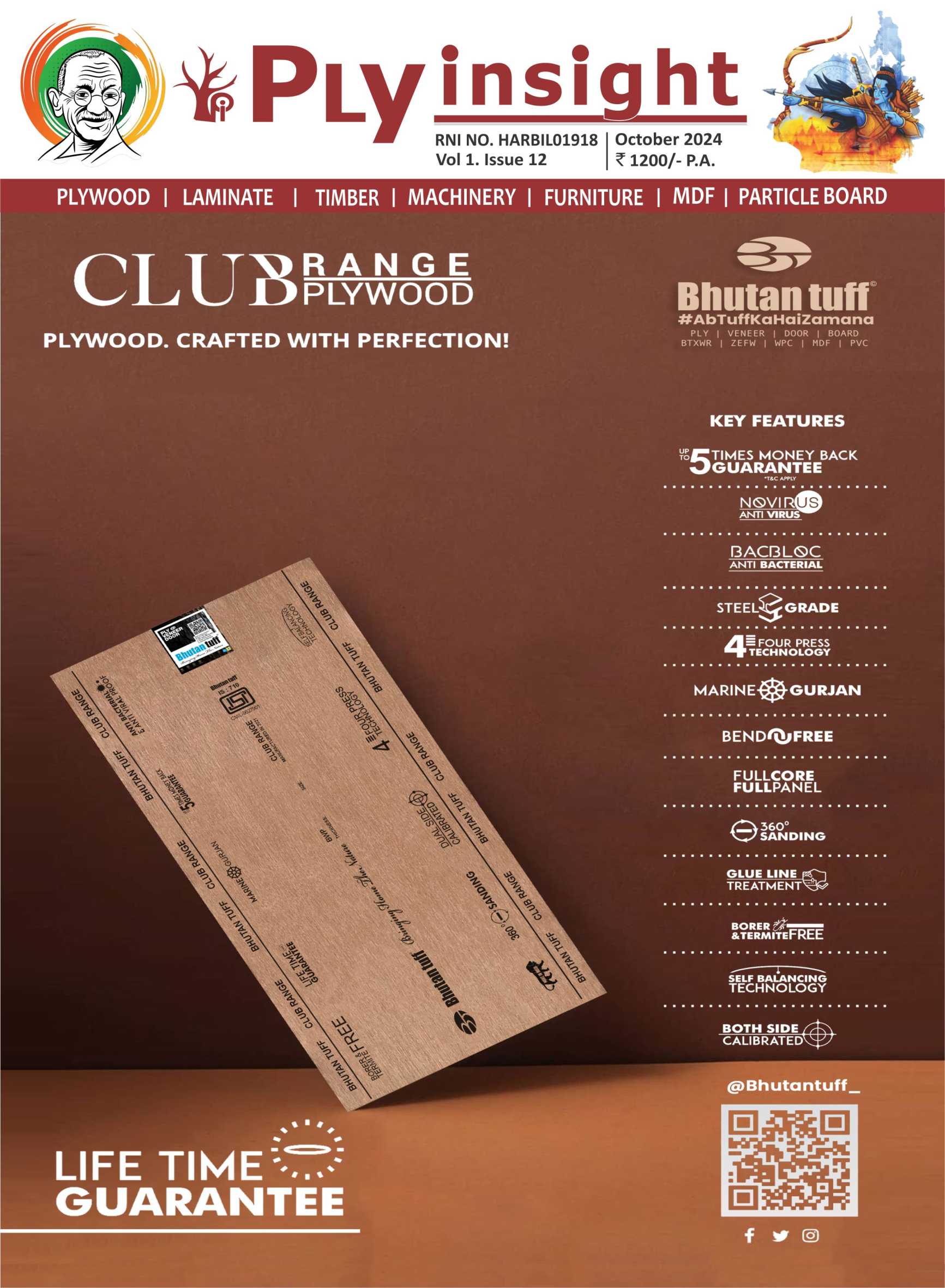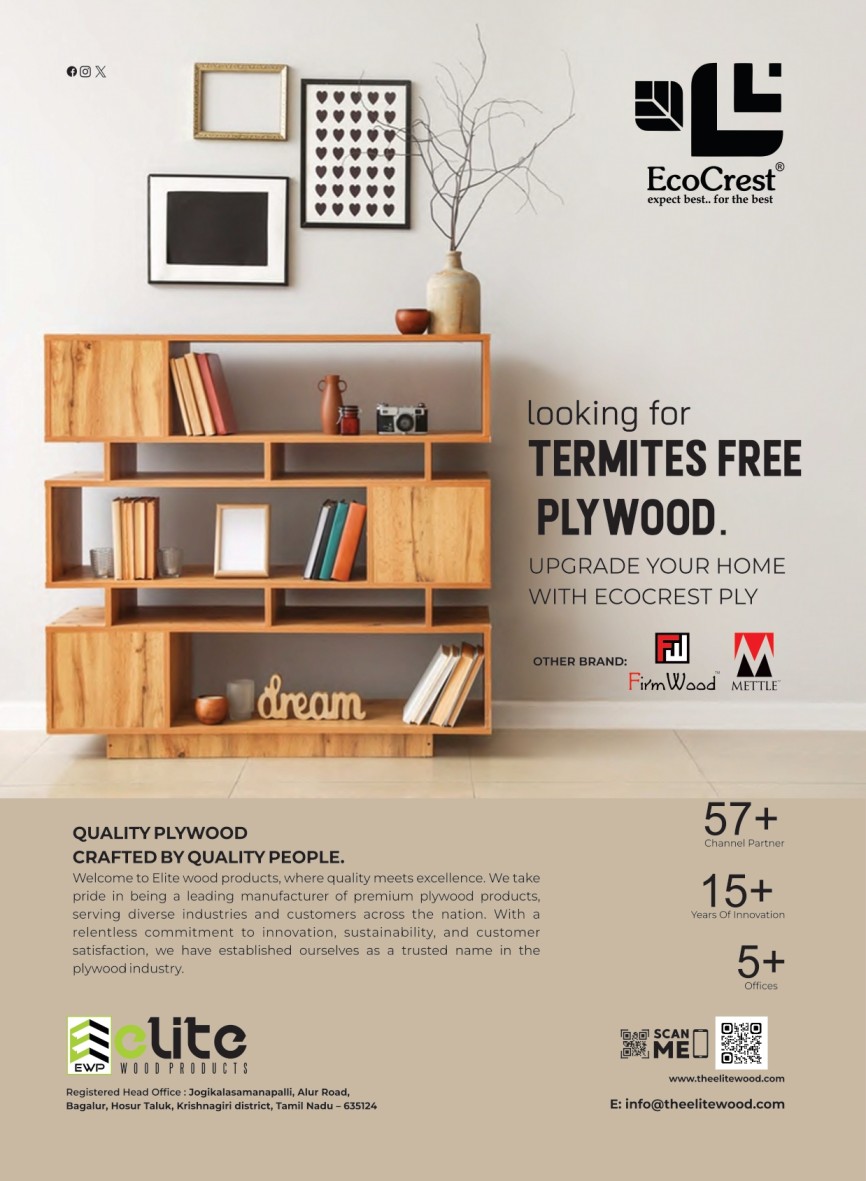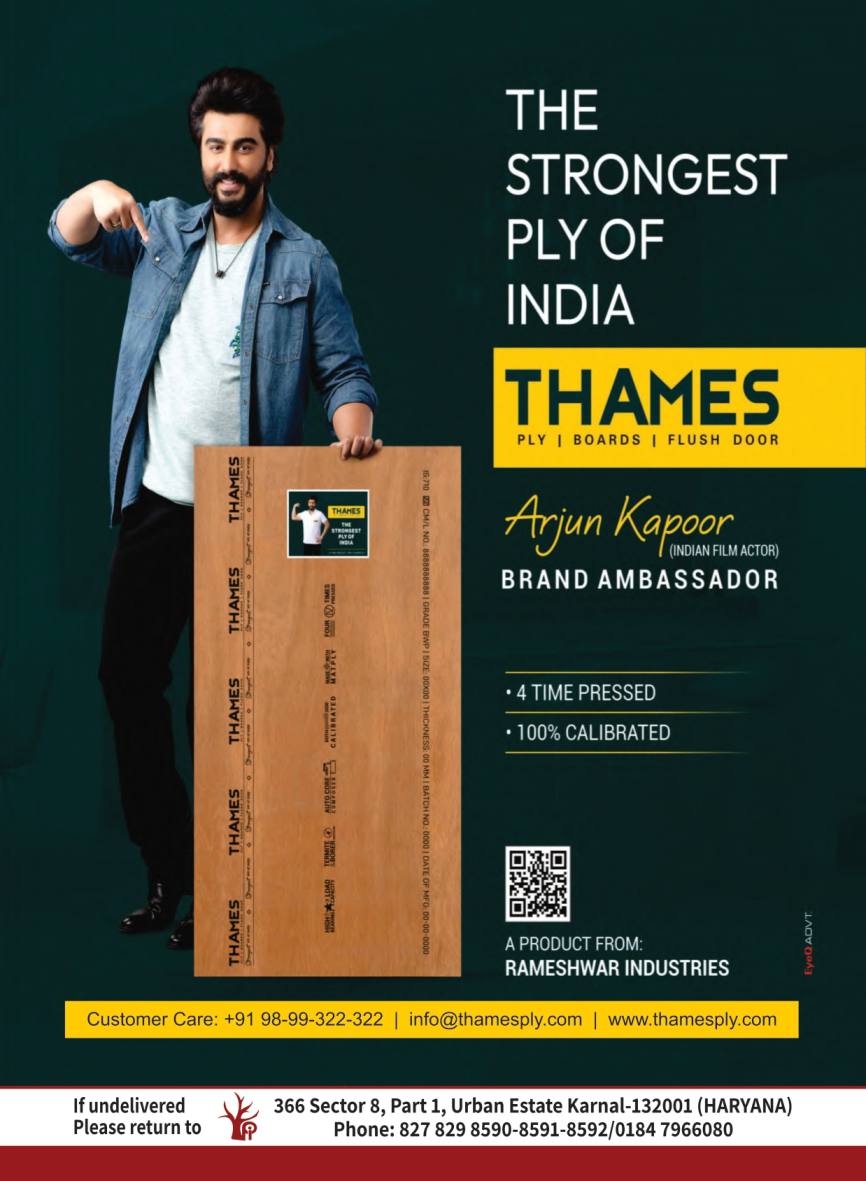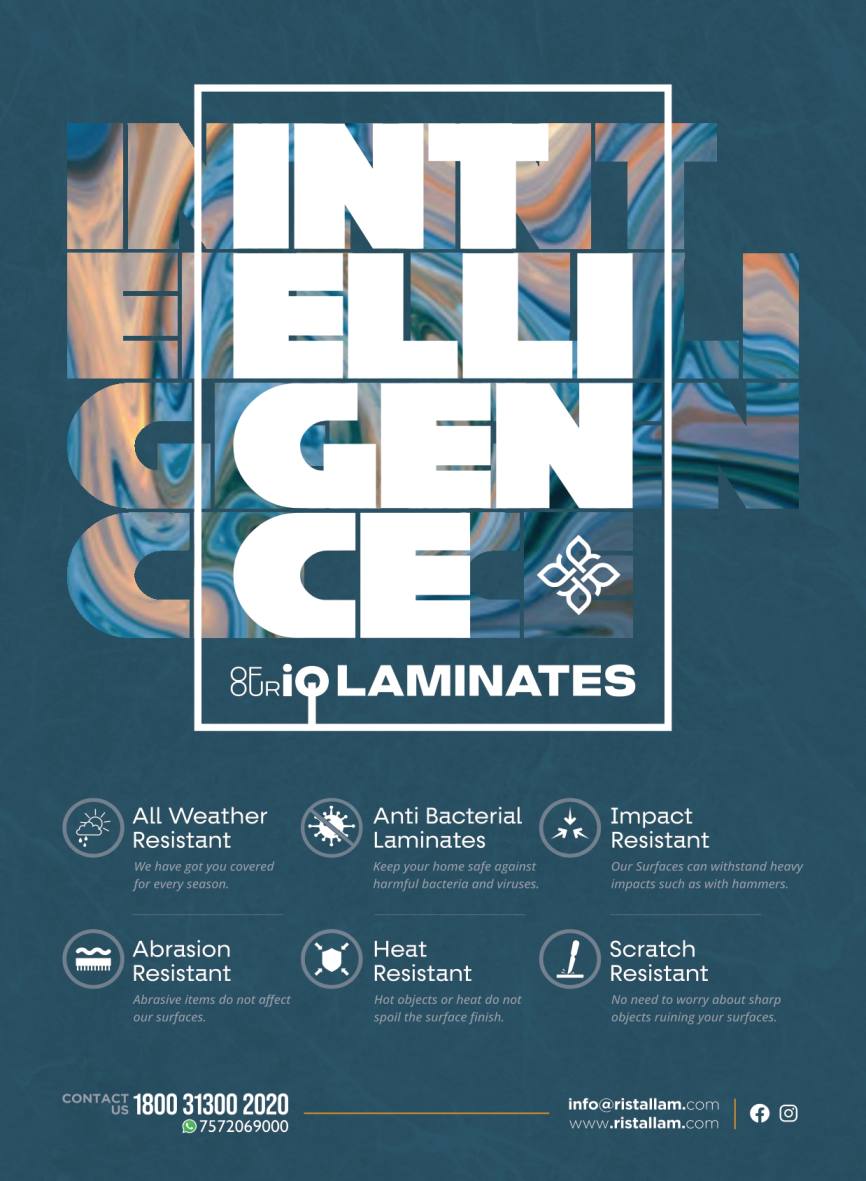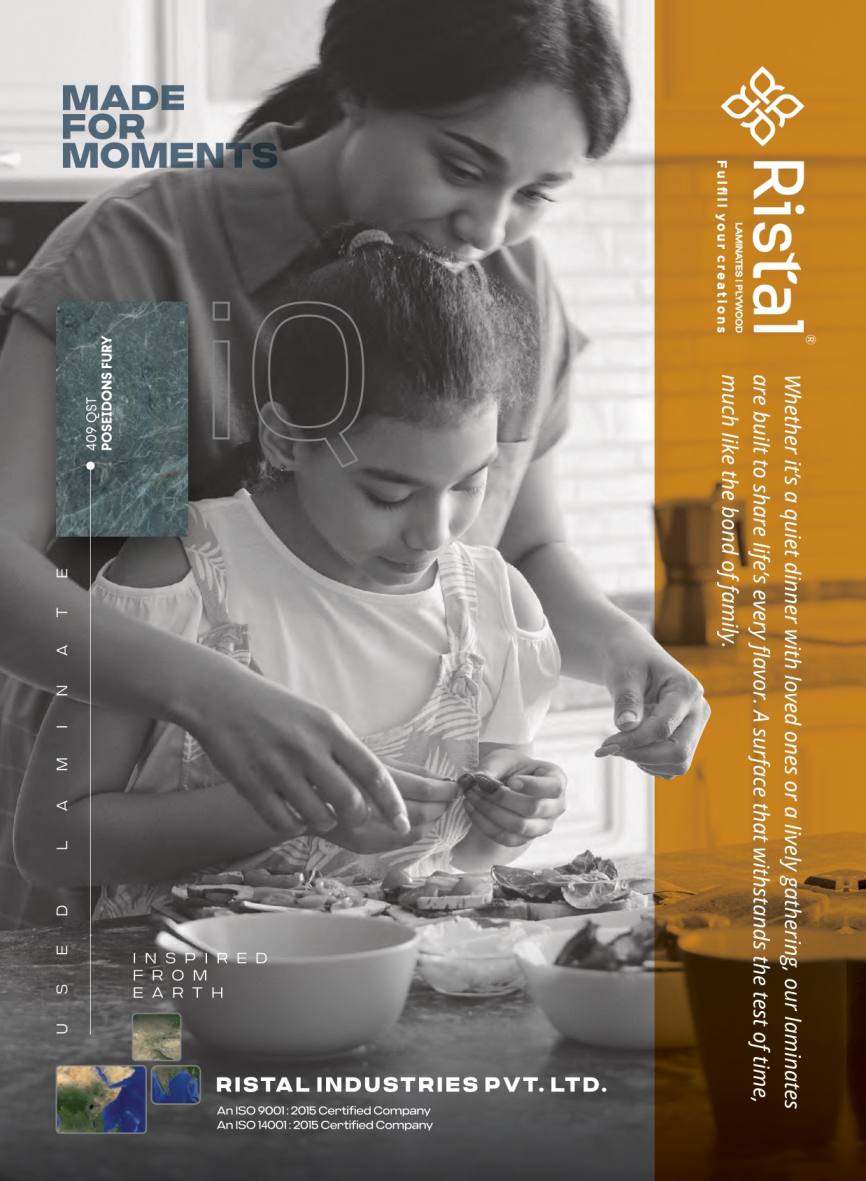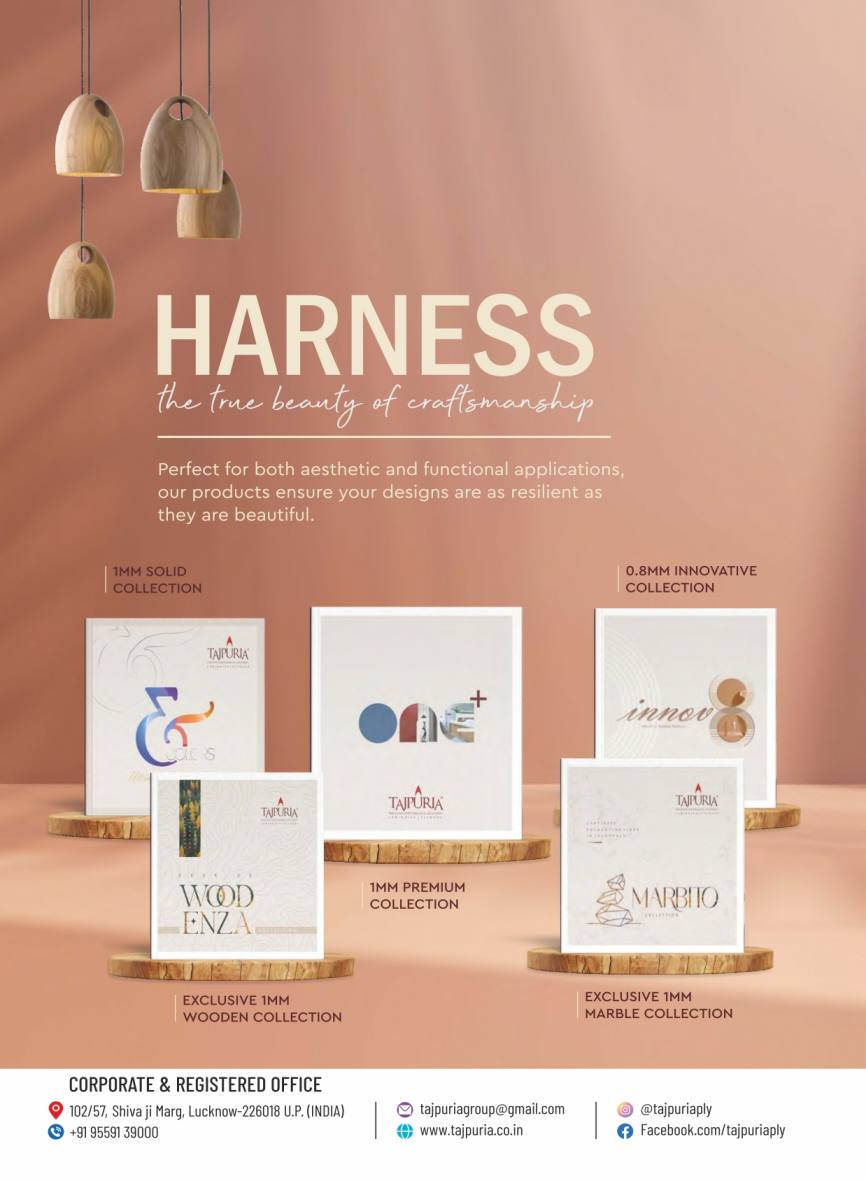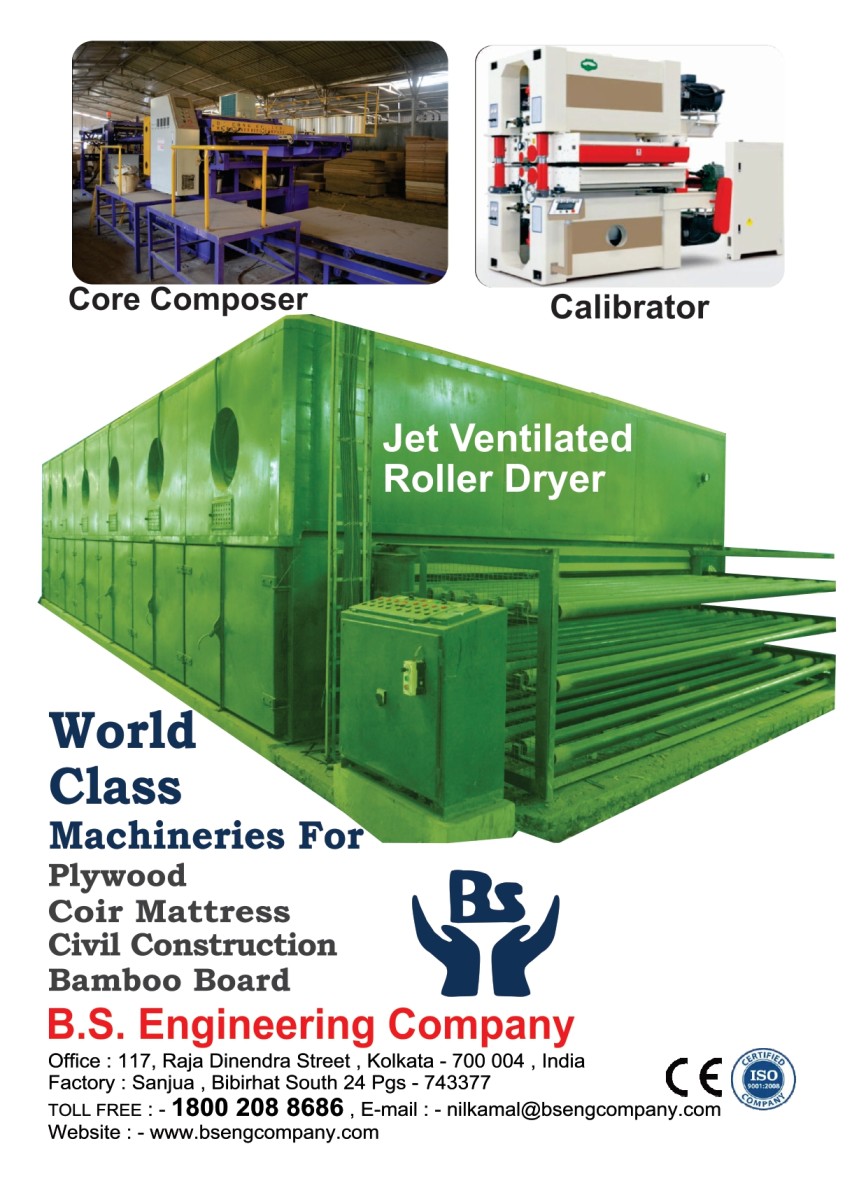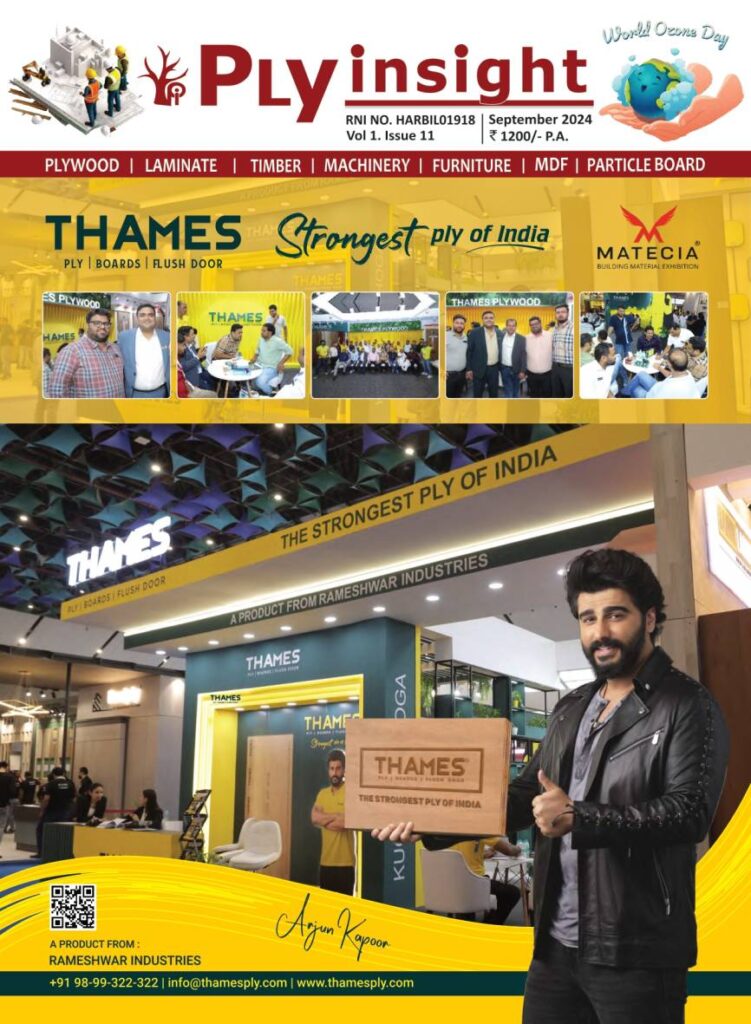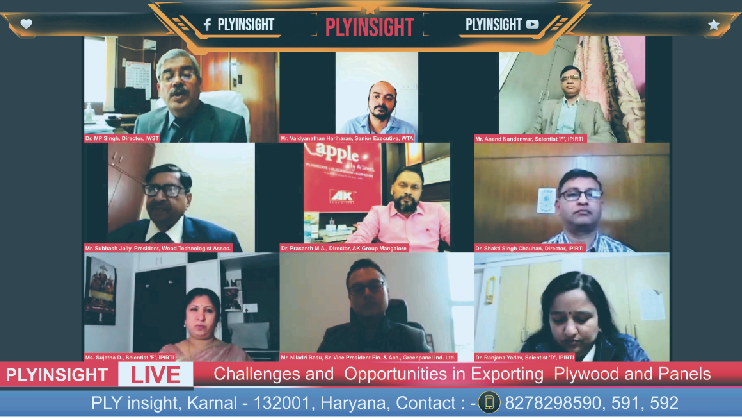
‘Challenges & opportunities in exporting plywood & panels for Indian Industries’
- फ़रवरी 24, 2022
- 0
Honorable Panelists:
Dr. M P Singh- Director, Institute of Wood Science & Technology, Bengaluru
Dr. Shakti Singh Chauhan- Director, Indian Plywood Industries Research & Training Institute, Bengaluru
Ms. Sujatha D.- Scientist ‘F’, Indian Plywood Ind. Research & Training Inst., Bengaluru
Mr. Anand Nandanwar-Scientist ‘F’, Indian Plywood Ind. Research & Training Inst., Bengaluru
Dr. Ranjana Yadav– Scientist ‘D’, Indian Plywood Ind. Research & Training Inst., Mohali
Dr. S. K. Nath– Scientist & Joint Director (Retd), Indian Plywood Industries Research & Training Institute, Bengaluru
Mr. Subhash Jolly – President, Wood Technologist Association
Mr. Neeladri Basu– Senior VP, Finance & Accounts, Greenpanel Industries Ltd.
Dr. Prasanth M. A.- Director, AK Group Mangaluru & VP – South Indian Ply Mfrrs. Assoc.
Mr. Haresh Ajbani– Director & CEO, Vritti Impex Pvt. Ltd.
Mr. Gajendra Rajput– VP, Wood Technologist Association
Mr. Vaidyanathan Hariharan– Wood Technologist Association & Founder Dir., Kalpaka RDF
Mr. Manoj Thakur– Senior Editor, PLY Insight
Mr. Suresh Bahety– Founder Editor, PLY Insight
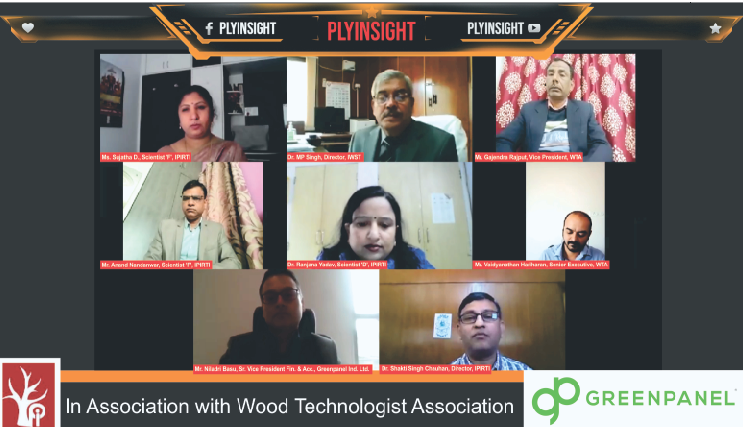
Significant Points & Input
Introductory remarks from Shri Subhash Jolly, President WTA:
- Plywood & panel industries can contribute much more to the economy of our country by looking into exports.
- It will play a major role in augmenting supply-demand equations and give thrust to stabilising the market. Exports will contribute to our economy & GDP, as well as build confidence in the industry.
- WTA is organising this webinar with suggestions & blessings from Shri Naresh Tewari Sahib, Chairman AIPMA, and also with requests from many industry representatives in this regard.
- We have industry leaders experienced in exports & export markets such as Shri Neeladri Bose, Dr Prasanth, and Shri Haresh Ajbani with us who can provide deep insights into the subject. We also have technical experts from IPIRTI with the guidance of Dr M P Singh & Dr Shakti Singh Chauhan. We are also joined by Shri Gajendra Rajput – VP, WTA, & Shri Vaidyanathan – Senior Executive WTA as technical people involved with the industry.
- We hope our plywood industry will get to know standards, practices and mindset required to look into export markets, from this webinar.
Dr. M. P. Singh:
- India originally started plywood industry journey for export requirements.
- However, we also have huge domestic requirements which are being effectively catered to by the PWI (Plywood Industries).
- But there is huge potential for exports from our country.
- There is need for introspection, to know & understand the regulations & standards in other countries with regard to various quality parameters.
- Also we need to understand why & how we can improve exports from our country.
- It is important to understand & appreciate that PWI works with 100% farm grown ‘agriwood’ in India. We have the uniqueness of using only AF (agro forestry) resources for our PWI, by default. There is no forest wood used by this sector.
- So, we need to create our narrative, and let the world know that 100% of India’s PWI products are Legal & Sustainable.
- Industries can also start working on quality output, utilising current availabl resources. Focus can be given in this area also.
Further during discussions:
- We need to thrust the narrative of automatic sustainability of Indian PWI products.
- Changing narrative is need of the hour.
- Undergoing FSC/PEFC audits having more than 90 parameters & other documentation requirements is very costly for Indian small farmers, and we need to support them in the best possible way.
- In the year 1988 itself, it has been decided that all PWI will take material from agricultural farm sources.
- We need to tell the world that ours is a different story.
Dr. Shakti Singh Chauhan:
- There are 2 ways of looking at exports: (1) in the basic form of raw boards, & (2) as intermediate materials & components for a value-added use, for example, furniture.
- Also, there are many markets that do not have as much stringent criteria as in some of the export markets. Some companies can focus on such markets too.
- One of the Ikea studies reveal that our country’s RM (raw material) costs are 25% higher than our Asian competitor countries.
- Our domestic market itself is huge such that we are having to import a large quantity of panels.
- VISION Statement: In 20 to 25 years, we should aim to become net exporters of plywood & panel products.
- We have to realise the potential, upgrade unorganised sector to take advantage of this potential.
- Surprised to see the volume of veneer imports into India. This wood veneer dependency has gone up dramatically. This area needs to be addressed and PWI must try to explore face-veneer indigenisation.
- 60% of furniture intermediate materials are imported, which is a big potential to realize and find out why & how to plug the gap.

Mr. Neeladri Basu:
- We need to work in a mechanised, organised & structured way in order to increase exports.
- Cost, Quality & Time are the key.
- Greenpanel has exported in 3 years, what PWI has exported in 25 years.
- Need to address certified timber requirements for India.
- Plantation is the key subject which needs to be addressed.
- India is on a rapid growth phase and we are going to need & consume huge volumes of wood resources over the coming years.
- Logistics costs remains very high. We are short of ships & container access 95% of which is dominated by China, especially during this pandemic period.
- Cost of importing into Middle East has shot up from USD 120 to USD 1,000 post pandemic.
- China ships entire shiploads. In such case we need to cut our profits which makes export unviable many times, in which case domestic market looks more profitable.
- Cost of logistics – should range around 6 to 7%, whereas the current logistics costs hovers around 20 to 22%.
- Very low export benefits from government. All other exporting countries provide higher benefits for exporters.
- There is a need for an Export Roadmap in this sector.
Dr. Prasanth M. A.:
- Pre-COVID: China was exporting 40,000 Crores of PWI exports. India exported 239 Crores, in comparison.
- We need to include unorganised sector also in exports.
- The unorganised small players are finding it difficult to revert appropriately to Emails & technical data specifications.
- There is a good case for an Export Promotion Council for Plywood & Panel industries. Presently we are under Capexil.
- Unorganised small players need information, and awareness on basic technical data, standards, and basic export requirements like pallet packing, documentations etc.
- India is getting into FTA (free trade agreement) with countries like UK, Australia, Japan etc. Producers can take advantage of these policies.
- Online platform facilitation. Example, Spice Board platform
Dr. M P Singh, during discussions:
- EPCH – Export Promotion Council for Handicrafts: This is a Company registered under Companies Act, out of GoI involvement, and guided by Min of Commerce. They make their own policies and approaches within the Act and run the institution.
- One discouraging fact about Associations in the PWI & Panel sector is that Associations are not functioning with Capital. There is a need to raise collective capital, and make a working model.
- Regarding CoC (Chain of Custody) and origin certifications, PWI can have a software platform for farmers and an App can be created to enrol farmer memberships. Because PWI source their RM from different farmers – small & big, and auditing different parameters will be difficult.
- Dr. Prasanth: We may think of involving FSC & PEFC officials in order to try & link the process into their system.
Mr. Haresh Ajbani:
- We are the pioneers of importing entire wood core veneer requirements & exporting high quality finished products to first world countries.
- We convinced them (importers in first world countries) about our knowledge, resourcefulness, labour & capabilities and worked towards it.
- We have been in touch with IPIRTI in order to create facilitation for standards upgrade & CARB level formaldehyde emission testing.
- We need to upgrade our standards, speed and requirements at par with global standards systems and come out of the archaic ways of doing things. Standards need to be pro-active & market oriented.
- In terms of customisation & specifications, we need to arrive at internationally used/acceptable language in our specification data. For example, GLP – Glue Line Poisoning. The moment international customers hear “poisoning” the deal is off. Even though both parties may be referring to the same treatment.
- Companies can try to be high-value producers, even if we are not able to compete in low-cost exports.
- Ms Sujatha: Mr Ajbani has been interacting with IPIRTI since around 2004-2005 & has been instrumental in our (IPIRTI) taking up low emission testing as a focus area, since then.
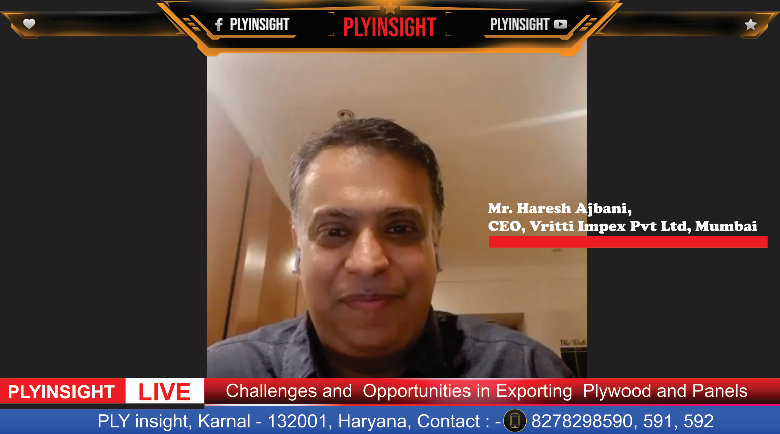
Mr. Gajendra Rajput:
- Unorganised players in our industry have to improve in awareness of process parameters & resin utilisation.
Ms. Sujatha D.:
- Need to raise awareness in the unorganised sector.
- In 2010, only around 10% were in the Organised sector. By 2020, India has around 30% PWI in the Organised sector.
- VISION Statement: We need to aim for having 75% in the Organised PWI sector.
- Logistics infrastructure inefficiency must be addressed.
- Addressing tax implications, administrative delays, documentation delays & high import costs will boost our national economy.
- There are various factors that PWI needs to adopt in order to standardize products & emissions.
- Resin formulation optimisation for reduced formaldehyde emissions is not a very big issue. But it needs right approach from factories.
- CARB & E0 are different, and have to be taken away from a combined mindset. PWI needs to understand specific market-based requirements in Standards & mechanical properties.
- Responding to query from Mr Gajendra Rajput: There is no differentiation in emission standards between normal density plywood & compreg plywood. Whatever the quantity of resin used in a product, it has to perform conforming to stipulated standard requirements. Factories must also realise that hot pressing temperature too plays a significant role in formaldehyde emissions.
Mr. Anand Nandanwar:
- Method of testing is very important with respect to Application of plywood and panel products.
- BIS standards are quite similar to world standards, stringent enough.
- Standards are made & maintained based on consumer interests in mind.
- Conditioning of panel products based on parameters of application is very important. It is always important to test panels based on temperature, RH (relative humidity), & other application parameters.
Dr. Ranjana Yadav:
- Many aspects depend on how industries adopt our suggestions.
- Resins are not weather dependent, contrary to perceptions.
- Always maintaining 0% core veneer moisture, especially when veneers cannot absorb any moisture from surroundings is detrimental to quality. We are basically killing the wood cells at 0% moisture.
- Factories are not able to remain stable in process parameters, even for domestic market supply also.
- There need to be awareness on how resin reaction takes place. It is not only about flow time, and seeing precipitation during cooking.
- Nano particles may be utilised to improve mechanical properties as well as reduce formaldehyde emissions.
Concluding Remarks from Dr. M. P. Singh:
- We need to make our way in such a way that our cost inputs for standardisation are lesser with regard to plywood and panel products.
- Firstly, improve quality & standards for domestic products.
- Our standards are so far voluntary. More and more smaller players should come into the structured system.
- Farmers need to be supported with better organising for RM augmentation.
- Fill the gaps of furniture industry requirements, which will help reduce imports.
- We need to continue discussions, debates and input that will allow us to grow together.
- Future of the sector looks good & I have full confidence about the coming facilitations from the part of GoI, especially during our celebration of Azadi Ka Amrut Mahotsav.
Comments from Vaidyanathan:
- Indian PWI must adapt to changing factors in market dynamics to take advantage of specific export markets & export-based product possibilities.
- The need to observe, learn, strategise and enter certain value-added areas of export markets is NOW, more than ever.
- The changing dynamics of world trade are very much in India’s favour during these times. Quick improvement strategies may help a lot of industries enter quality exports & start building overseas trade relationships.
- Factories must be open to learning and changing from age old practices & prejudices. These are blocking our minds from improvising & improving.
- Improvement in quality with available domestic resources must be aimed.
- India is inherently an innovating nation & we can easily adapt to export requirements with existing resources.
- A small part of time may be spent by factories on learning the trends in export markets, specifications, standards requirements, packing & logistics practices. We must be aware of all these in order to form a structured strategy to increase our percentage of exports. This alone will help plug the gap created by our huge import dependency for quality core & face veneers.
- We, as a nation, have consistently proven our ability to adapt & improvise. I am sure we will continue to prove our adaptability in times to come.
जय हिन्द!जय हिंद!
‘भारतीय उद्योगों के लिए प्लाइवुड और पैनलों के निर्यात में चुनौतियाँ और अवसर’
प्रमुख बिंदु और सुचनाएं
श्री सुभाष जॉली, अध्यक्ष डब्ल्यूटीए से परिचयात्मक टिप्पणीः
- प्लाइवुड और पैनल उद्योग निर्यात में हमारे देश की अर्थव्यवस्था में बहुत अधिक योगदान कर सकते हैं।
- यह आपूर्ति-मांग समीकरणों को बढ़ाने में एक प्रमुख भूमिका निभाएगा और बाजार को स्थिर करने पर जोर देगा। निर्यात हमारी अर्थव्यवस्था और जीडीपी में योगदान देगा, साथ ही उद्योग में विश्वास पैदा करेगा।
- डब्ल्यूटीए इस वेबिनार का आयोजन श्री नरेश तिवारी, अध्यक्ष एआईपीएमए के सुझावों और आशीर्वाद के साथ और इस संबंध में कई उद्योग प्रतिनिधियों के अनुरोधों पर कर रहा है
- हमारे साथ श्री नीलाद्रि बोस, डॉ प्रशांत और श्री हरेश अजबानी जैसे निर्यात और निर्यात बाजारों में अनुभवी उद्योग जगत के नेता हैं जो इस विषय में गहरी अंतर्दृष्टि प्रदान कर सकते हैं। हमारे साथ डॉ एम पी सिंह और डॉ शक्ति सिंह चौहान के मार्गदर्शन में आईपीआईआरटीआई के तकनीकी विशेषज्ञ भी हैं। श्री गजेंद्र राजपूत – वीपी, डब्ल्यूटीए, और श्री वैद्यनाथन – वरिष्ठ कार्यकारी डब्ल्यूटीए उद्योग से जुड़े तकनीकी लोगों के रूप में भी शामिल हुए हैं।
- हमें उम्मीद है कि इस वेबिनार से हमारे प्लाईवुड उद्योग को निर्यात बाजारों को देखने के लिए आवश्यक मानकों, प्रथाओं और मानसिकता को जानने को मिलेगा।
डॉ एम पी सिंहः
- भारत ने मूल रूप से निर्यात आवश्यकताओं के लिए प्लाईवुड उद्योग की यात्रा शुरू की।
- हालांकि, हमारे पास बड़ी घरेलू आवश्यकताएं भी हैं जिन्हें PWI (प्लाईवुड इंडस्ट्रीज) द्वारा प्रभावी ढंग से पूरा किया जा रहा है।
- लेकिन हमारे देश से निर्यात की अपार संभावनाएं हैं।
- विभिन्न गुणवत्ता मानकों के संबंध में अन्य देशों में नियमों और मानकों को जानने और समझने के लिए आत्मनिरीक्षण की आवश्यकता है।
- हमें यह भी समझना होगा कि हम अपने देश से निर्यात को क्यों और कैसे सुधार सकते हैं।
- यह समझना और सराहना करना महत्वपूर्ण है कि PWI भारत में 100 प्रतिशत कृषि उपज वाले ‘एग्रीवुड’ के साथ काम करता है। संपूर्ण विश्व में एकमात्र हमारे पास अपने PWI के लिए केवल AF (कृषि वानिकी) संसाधनों का उपयोग करने की विशिष्टता है। इस क्षेत्र द्वारा कोई वन लकड़ी उपयोग नहीं की जाती है।
- इसलिए, हमें अपनी बात बताने की जरूरत है, और दुनिया को यह बताना होगा कि भारत के 100 प्रतिशत उत्पाद कानूनी और टिकाऊ हैं।
- उद्योग मौजूदा उपलब्ध संसाधनों का उपयोग करते हुए गुणवत्तापूर्ण उत्पादन पर काम करना शुरू कर सकते हैं। इस क्षेत्र में भी फोकस किया जा सकता है।
आगे चर्चा के दौरानः
- हमें भारतीय PWI उत्पादों की स्वचालित Sustainbility को विस्तार से बताने पर जोर देने की जरूरत है।
- सही प्रचार करना बदलना समय की मांग है।
- भारतीय छोटे किसानों के लिए 90 से अधिक मापदंडों और अन्य दस्तावेजीकरण आवश्यकताओं वाले FSC/PEFC ऑडिट करना बहुत महंगा है, और हमें उन्हें सर्वोत्तम संभव तरीके से समर्थन देने की आवश्यकता है।
- वर्ष 1988 में ही यह निर्णय लिया गया है कि सभी PWI कृषि फार्म स्रोतों से सामग्री लेंगे।
- हमें दुनिया को बताना होगा कि हमारी कहानी अलग है।
डॉ शक्ति सिंह चौहानः
- निर्यात को देखने के 2 तरीके हैंः (1) कच्चे बोर्ड के मूल रूप में, और (2) मूल्य वर्धित उपयोग के लिए मध्यवर्ती सामग्री और घटकों के रूप में, उदाहरण के लिए, फर्नीचर।
- इसके अलावा, ऐसे कई बाजार हैं जिनमें उतने कड़े मानदंड नहीं हैं जितने कुछ निर्यात बाजारों में हैं। कुछ कंपनियां ऐसे बाजारों पर भी फोकस कर सकती हैं।
- आइकिया के एक अध्ययन से पता चलता है कि हमारे देश के RM (कच्चे माल) की लागत हमारे एशियाई प्रतिस्पर्धी देशों की तुलना में 25 प्रतिशत अधिक है।
- हमारा घरेलू बाजार अपने आप में इतना बड़ा है कि हमें बड़ी मात्रा में पैनलों का आयात करना पड़ रहा है।
- विजन स्टेटमेंट: 20 से 25 वर्षों में, हमें प्लाईवुड और पैनल उत्पादों के शुद्ध निर्यातक बनने का लक्ष्य रखना चाहिए।
- हमें इस क्षमता का लाभ उठाने के लिए क्षमता का एहसास करना होगा, असंगठित क्षेत्र का उन्नयन करना होगा।
- भारत में विनियर के आयात की मात्रा को देखकर आश्चर्य हुआ। फेस की निर्भरता नाटकीय रूप से बढ़ गई है। इस क्षेत्र पर ध्यान देने की जरूरत है और PWI को फेस-वीनीयर का स्वदेशीकरण का करने की कोशिश करनी चाहिए।
- 60 प्रतिशत फर्नीचर इंटरमीडिएट सामग्री का आयात किया जाता है, जिसे समझने और पता लगाने की बड़ी जरूरत है कि अंतर को क्यों और कैसे पाटना है।
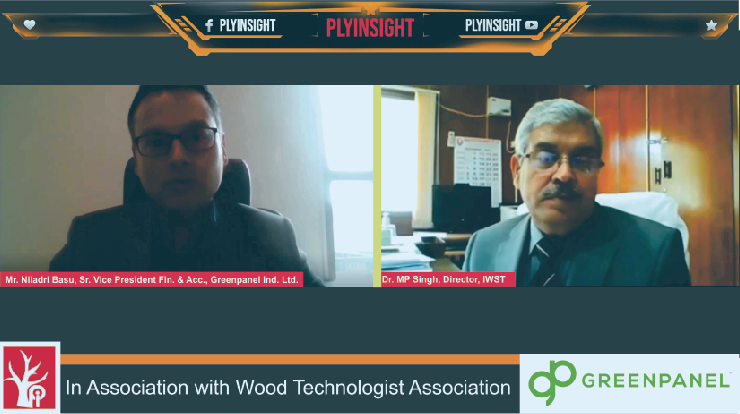
श्री नीलाद्री बसुः
- निर्यात बढ़ाने के लिए हमें यंत्रीकृत, संगठित और संरचित तरीके से काम करने की जरूरत है।
- लागत, गुणवत्ता और समय प्रमुख हैं।
- ग्रीनपैनल ने 3 साल में निर्यात किया है, जो PWI ने 25 वर्षों में निर्यात किया है।
- भारत के लिए प्रमाणित लकड़ी की आवश्यकताओं को पूरा करने की आवश्यकता है।
- वृक्षारोपण एक प्रमुख विषय है जिस पर ध्यान देने की आवश्यकता है।
- भारत तेजी से विकास के चरण में है और आने वाले वर्षों में हमें भारी मात्रा में लकड़ी के संसाधनों की आवश्यकता होगी और उनका उपभोग करना होगा।
रसद लागत बहुत अधिक बनी हुई है। हमारे पास जहाजों और कंटेनर की पहुंच की कमी है, जिनमें से 95 प्रतिशत पर चीन का प्रभुत्व है, खासकर इस महामारी की अवधि के दौरान। - महामारी के बाद मध्य पूर्व में आयात की लागत 120 अमेरिकी डॉलर से बढ़कर 1,000 अमेरिकी डॉलर हो गई है।
- चीन पूरे शिपलोड को शिप करता है। ऐसे मामले में हमें अपने मुनाफे में कटौती करने की जरूरत है जो कई बार निर्यात को अव्यवहारिक बना देता है, ऐसे में घरेलू बाजार अधिक लाभदायक लगता है।
- लॉजिस्टिक्स की लागत – लगभग 6 से 7 प्रतिशत के बीच होनी चाहिए, जबकि वर्तमान लॉजिस्टिक्स लागत लगभग 20 से 22 प्रतिशत के आसपास है।
- सरकार से बहुत कम निर्यात लाभ। अन्य सभी निर्यातक देश निर्यातकों के लिए उच्च लाभ प्रदान करते हैं।
- इस क्षेत्र में निर्यात रोडमैप की आवश्यकता है।
डॉ. प्रशांत एम.ए. :
- प्री-कोविडरू चीन 40,000 करोड़ PWI माल निर्यात का निर्यात कर रहा था। भारत ने इसकी तुलना में 239 करोड़ का निर्यात किया।
- हमें असंगठित क्षेत्र को भी निर्यात में शामिल करने की आवश्यकता है।
- असंगठित छोटे खिलाडियों के लिए ईमेल और तकनीकी डेटा विनिर्देशों को उचित रूप से वापस करना मुश्किल हो रहा है।
- प्लाइवुड और पैनल उद्योगों के लिए Export Promotion Council के पास एक अच्छा मामला है। वर्तमान में हम कैपेक्सिल के अधीन हैं।
- असंगठित छोटे खिलाड़ियों को बुनियादी तकनीकी डेटा, मानकों और बुनियादी निर्यात आवश्यकताओं जैसे पैलेट पैकिंग, दस्तावेजीकरण आदि के बारे में जानकारी और जागरूकता की आवश्यकता है।
- भारत यूके, ऑस्ट्रेलिया, जापान आदि देशों के साथ एफटीए (मुक्त व्यापार समझौता) कर रहा है। निर्माता इन नीतियों का लाभ उठा सकते हैं।
- ऑनलाइन मंच सुविधा। उदाहरण, स्पाइस बोर्ड प्लेटफॉर्म

डॉ एम पी सिंह, चर्चा के दौरान:
- EPCH – हस्तशिल्प के लिए निर्यात संवर्धन परिषदरू यह कंपनी अधिनियम के तहत पंजीकृत कंपनी हैं, जो भारत सरकार की भागीदारी से बाहर है, और वाणिज्य मंत्रालय द्वारा निर्देशित है। वे अधिनियम के भीतर अपनी नीतियां और दृष्टिकोण बनाते हैं और संस्था चलाते हैं।
- PWI और पैनल क्षेत्र के Association के बारे में एक हतोत्साहित करने वाला तथ्य यह है कि ये समुह सामुहिक पूंजी के साथ काम नहीं कर रहे हैं। सामूहिक पूंजी जुटाने और एक कार्यशील मॉडल बनाने की जरूरत है।
- सीओसी (चेन ऑफ कस्टडी) और मूल प्रमाणन के संबंध में, पीडब्ल्यूआई के पास किसानों के लिए एक सॉफ्टवेयर प्लेटफॉर्म हो सकता है और किसान सदस्यता को नामांकित करने के लिए एक ऐप बनाया जा सकता है। क्योंकि पीडब्ल्यूआई अपने आरएम को अलग-अलग किसानों – छोटे और बड़े से सोर्स करता है, और अलग-अलग मापदंडों का ऑडिट करना मुश्किल होगा।
- डॉ. प्रशांतः हम इस प्रक्रिया को उनके सिस्टम से जोड़ने का प्रयास करने के लिए FSC और PEFC अधिकारियों को शामिल करने के बारे में सोच सकते हैं।
श्री हरेश अजबानी:
- हम संपूर्ण वुड कोर विनियर आवश्यकताओं को आयात करने और प्रथम विश्व के देशों को उच्च गुणवत्ता वाले तैयार उत्पादों का निर्यात करने में अग्रणी हैं।
- हमने उन्हें (पहली दुनिया के देशों में आयातकों को) अपने ज्ञान, साधन संपन्नता, श्रम और क्षमताओं के बारे में आश्वस्त किया और इस दिशा में काम किया।
- मानकों के उन्नयन और CARB स्तर के फॉर्मलाडेहाइड उत्सर्जन परीक्षण के लिए सुविधा बनाने के लिए हम IPIRTI के संपर्क में हैं।
- हमें अपने मानकों, गति और आवश्यकताओं को वैश्विक मानक प्रणालियों के अनुरूप उन्नत करने और चीजों को करने के पुराने तरीकों से बाहर आने की जरूरत है। मानकों को सक्रिय और बाजारोन्मुख होने की आवश्यकता है।
- अनुकूलन और विशिष्टताओं के संदर्भ में, हमें अपने विनिर्देश डेटा में अंतरराष्ट्रीय स्तर पर उपयोग की जाने वाली/स्वीकार्य भाषा अपनाने की आवश्यकता है। उदाहरण के लिए, जीएलपी – ग्लू लाइन पॉइजनिंग। जिस क्षण अंतरराष्ट्रीय ग्राहक ष्जहरष् सुनते हैं, सौदा बंद हो जाता है। भले ही दोनों पक्ष एक ही उपचार की बात कर रहे हों।
- कंपनियां उच्च मूल्य के उत्पादक बनने की कोशिश कर सकती हैं, भले ही हम सस्ते माल के निर्यात में प्रतिस्पर्धा करने में सक्षम न हों।
- सुश्री सुजातारू श्री अजबानी लगभग 2004-2005 से आईपीआईआरटीआई के साथ संपर्क में हैं और तब से हमारे (IPIRTI) में कम उत्सर्जन परीक्षण को फोकस करते हुए महत्वपूर्ण टेस्टींग करवा रहे हैं।
श्री गजेंद्र राजपूतः
- हमारे उद्योग में असंगठित खिलाड़ियों को प्रक्रिया मानकों और रेजीन उपयोग के बारे में जागरूकता में सुधार करना होगा।
सुश्री सुजाता डी.:
- असंगठित क्षेत्र में जागरूकता बढ़ाने की जरूरत है।
- 2010 में, केवल 10 प्रतिशत ही संगठित क्षेत्र में थे। 2020 तक, भारत में संगठित क्षेत्र में लगभग 30ः PWI इन्डस्ट्रीज हैं।
- विजन स्टेटमेंटः हमें संगठित PWI क्षेत्र में 75 प्रतिशत होने का लक्ष्य रखना चाहिए।
- Logistic के बुनियादी ढांचे की अक्षमता को संभाला जाना चाहिए।
- कर संबंधी प्रभावों, प्रशासनिक देरी, दस्तावेजीकरण में देरी और उच्च आयात लागतों को संभालने से हमारी राष्ट्रीय अर्थव्यवस्था को बढ़ावा मिलेगा।
- उत्पादों और उत्सर्जन के मानकीकरण के लिए PWI को विभिन्न विचारों को अपनाने की आवश्यकता है।
- कम फॉर्मलाडेहाइड उत्सर्जन के लिए रेजिन फॉर्म्युलेशन ऑप्टिमाइजेशन कोई बहुत बड़ा मुद्दा नहीं है। लेकिन इसे कारखानों से सही दृष्टिकोण की जरूरत है।
- CARB और EO अलग हैं, और इन्हें एक संयुक्त मानसिकता से दूर करना होगा। PWI को मानकों और यांत्रिक गुणों में विशिष्ट बाजार-आधारित आवश्यकताओं को समझने की आवश्यकता है।
- श्री गजेंद्र राजपूत के प्रश्न का उत्तररू सामान्य घनत्व वाले प्लाईवुड और कंप्रेग प्लाईवुड के बीच उत्सर्जन मानकों में कोई अंतर नहीं है। किसी उत्पाद में उपयोग किए जाने वाले रेजीन की मात्रा जो भी हो, उसे निर्धारित मानक आवश्यकताओं के अनुरूप प्रदर्शन करना होता है। कारखानों को यह भी महसूस करना चाहिए कि Hot Press का तापमान भी फॉर्मलाडेहाइड उत्सर्जन में महत्वपूर्ण भूमिका निभाता है।
श्री आनंद नंदनवर:
- प्लाइवुड और पैनल उत्पादों के अनुप्रयोग के संबंध में परीक्षण की विधि बहुत महत्वपूर्ण है।
- बीआईएस मानक विश्व मानकों के काफी समान हैं, काफी कड़े हैं।
- BIS Standards उपभोक्ता हितों को ध्यान में रखकर बनाए और बनाए रखे जाते हैं।
- आवेदन के मापदंडों के आधार पर पैनल उत्पादों की कंडीशनिंग बहुत महत्वपूर्ण है। तापमान, RH (सापेक्ष आर्द्रता), और अन्य अनुप्रयोग मापदंडों के आधार पर पैनलों का परीक्षण करना हमेशा महत्वपूर्ण होता है।
डॉ रंजना यादव:
- कई पहलू इस बात पर निर्भर करते हैं कि उद्योग हमारे सुझावों को कैसे अपनाते हैं।
- धारणाओं के विपरीत रेजिन मौसम पर निर्भर नहीं हैं,
- हमेशा कोर विनियर की 0 प्रतिशत नमी बनाए रखना, खासकर जब विनियर परिवेश से किसी भी नमी को अवशोषित नहीं कर सकता है, गुणवत्ता के लिए हानिकारक है। हम मूल रूप से 0 प्रतिशत Moisture करने पर लकड़ी की कोशिकाओं को घरेलू बाजार में आपूर्ति के लिए भी कारखाने प्रक्रिया मानकों में स्थिर नहीं रह पा रहे हैं।
- रेजीन प्रतिक्रिया कैसे होती है, इस बारे में जागरूकता की आवश्यकता है। यह केवल थ्सवू ज्पउम और पकाने के दौरान तेजी देखने के लिए नहीं है।
- Nano Particles का उपयोग यांत्रिक गुणों में सुधार के साथ-साथ फॉर्मलाडेहाइड उत्सर्जन को कम करने के लिए किया जा सकता है।
डॉ एम पी सिंह की ओर से समापन टिप्पणी:
- हमें अपना रास्ता इस तरह से बनाने की जरूरत है कि प्लाईवुड और पैनल उत्पादों के मानकीकरण के लिए हमारी लागत कम हो।
- सबसे पहले, घरेलू उत्पादों की गुणवत्ता और मानकों में सुधार करें।
- हमारे मानक अब तक स्वैच्छिक हैं। अधिक से अधिक छोटे खिलाड़ियों को संरचित प्रणाली में आना चाहिए।
- RM संवर्द्धन के लिए बेहतर आयोजन के साथ किसानों को समर्थन देने की जरूरत है।
- फर्नीचर उद्योग की आवश्यकताओं के अंतराल को भरें, जिससे आयात को कम करने में मदद मिलेगी।
- हमें चर्चा, बहस और सुझाव मांगना जारी रखने की जरूरत है जो हमें एक साथ बढ़ने का अवसर देगा ।
- क्षेत्र का भविष्य अच्छा दिख रहा है और मुझे भारत सरकार की ओर से आने वाली सुविधाओं के बारे में पूरा भरोसा है, खासकर आजादी का अमृत महोत्सव के हमारे उत्सव के दौरान।
वैद्यनाथन की टिप्पणियाँ:
- भारतीय PWI को विशिष्ट निर्यात बाजारों और निर्यात-आधारित उत्पाद संभावनाओं का लाभ उठाने के लिए बाजार की गतिशीलता में बदलते कारकों के अनुकूल होना चाहिए।
- निर्यात बाजारों के कुछ मूल्य वर्धित क्षेत्रों को देखने, सीखने, रणनीति बनाने और उनमें प्रवेश करने की आवश्यकता अब पहले से कहीं अधिक है।
- इस समय के दौरान विश्व व्यापार की बदलती गतिशीलता भारत के पक्ष में है। त्वरित सुधार रणनीतियाँ बहुत सारे उद्योगों को गुणवत्तापूर्ण निर्यात में प्रवेश करने और विदेशी व्यापार संबंधों का निर्माण शुरू करने में मदद कर सकती हैं।
- कारखानों को सीखने और सदियों पुरानी प्रथाओं और पूर्वाग्रहों की बदलने के लिए खुला होना चाहिए। ये हमारे दिमाग को सुधार के बारे में सोचने और सुधार करने से रोक रहे हैं।
- उपलब्ध घरेलू संसाधनों से गुणवत्ता में सुधार का लक्ष्य होना चाहिए।
- भारत स्वाभाविक रूप से एक नवोन्मेषी राष्ट्र है और हम मौजूदा संसाधनों के साथ निर्यात आवश्यकताओं को आसानी से अपना सकते हैं।
- निर्यात बाजारों, विनिर्देशों, मानकों की आवश्यकताओं, पैकिंग और Logistics में रुझानों को सीखने के लिए कारखानों द्वारा समय का एक छोटा सा हिस्सा खर्च किया जा सकता है। निर्यात के हमारे प्रतिशत को बढ़ाने के लिए एक संरचित रणनीति बनाने के लिए हमें इन सभी के बारे में पता होना चाहिए। यह अकेले गुणवत्ता वाले कोर और फेस विनियर के लिए हमारी भारी आयात निर्भरता द्वारा बनाए गए अंतर को पाटने में मदद करेगा।
- एक राष्ट्र के रूप में हमने अनुकूलन और सुधार करने की अपनी क्षमता को लगातार साबित किया है। मुझे यकीन है कि आने वाले समय में हम अपनी अनुकूलन क्षमता साबित करते रहेंगे।
जय हिन्द!

